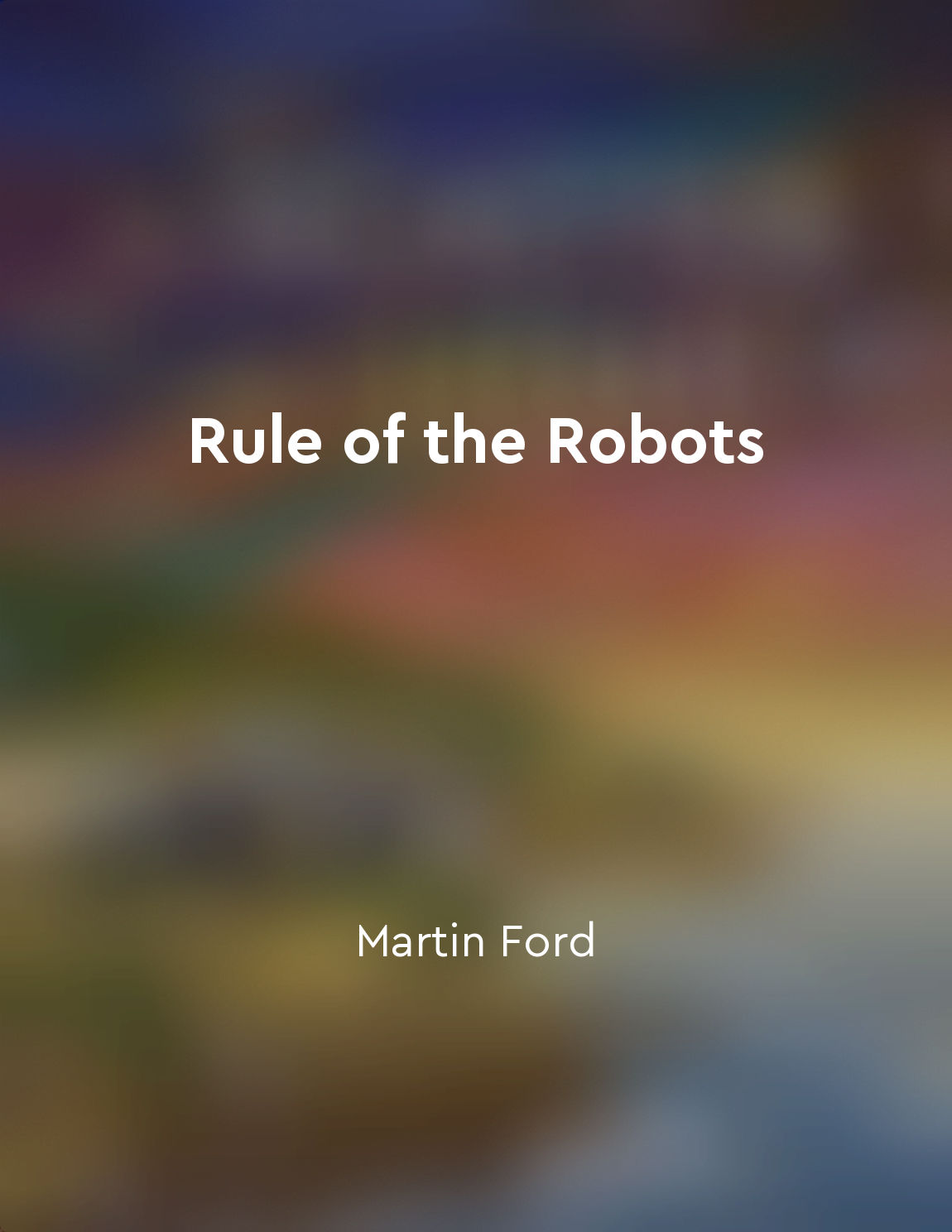Overreliance on technology can lead to errors in judgment from "summary" of The Glass Cage by Nicholas Carr
In our modern world, we have come to rely heavily on technology to assist us in various tasks and decisions, from the mundane to the complex. However, this overreliance on technology can sometimes backfire and lead to errors in judgment. As we entrust more and more of our cognitive abilities to machines and algorithms, we risk losing touch with our own skills and instincts. When we allow technology to make decisions for us, we may become complacent and fail to critically evaluate the information presented to us. We may blindly follow the recommendations of a computer program or a GPS device without questioning its accuracy or relevance to the situation at hand. This can result in us making poor choices or overlooking important details that could have a significant impact on the outcome. Moreover, the more we rely on technology to perform tasks for us, the less we exercise our own cognitive abilities and judgment. Our brains are like muscles that need to be regularly exercised to stay sharp and effective. By outsourcing our thinking to machines, we run the risk of becoming mentally lazy and dependent on external sources of information. This can lead to a decline in our ability to think critically, solve problems creatively, and make sound decisions independently. In addition, technology is not infallible and can sometimes malfunction or provide inaccurate information. If we place too much trust in technology without verifying its reliability, we leave ourselves vulnerable to errors and misjudgments. We must remember that technology is a tool to assist us, not a substitute for our own judgment and intuition. We should use it wisely and thoughtfully, taking into account its limitations and potential pitfalls.- While technology can be a valuable asset in our lives, we must be cautious not to let it overshadow our own cognitive abilities and judgment. We should strive to strike a balance between using technology as a helpful tool and relying on our own skills and instincts to make informed decisions. By maintaining a healthy skepticism towards technology and remaining actively engaged in the decision-making process, we can avoid the pitfalls of overreliance and ensure that our judgment remains sharp and reliable.
Similar Posts
Leverage network effects to build powerful businesses
Network effects are a powerful way to create value in a business. Simply put, the more users a product or service has, the more...
Ethical questions surround automated systems
The rise of automation has brought with it a myriad of ethical questions that must be grappled with. As machines become increas...
Each culture is unique
The essence of the spirit of a culture lies in the unique way in which it interprets and interacts with the world around it. Ea...

The future of work is uncertain
In the age of automation and artificial intelligence, the traditional notion of work is being fundamentally challenged. As mach...

Rationality is not synonymous with selfinterest
One common misunderstanding about rationality is the belief that it is always aligned with self-interest. This misconception ar...
Our understanding of the universe is limited by our current level of technology and knowledge
As we peer out into the vast expanse of the cosmos, we are faced with the humbling realization that our understanding of the un...
The future with sentient machines offers endless possibilities
The dawn of the age of sentient machines is upon us, offering a future that is brimming with endless possibilities. Imagine a w...

The future of work will be defined by the relationship between humans and machines
In the coming years, the nature of work will be profoundly shaped by the dynamic interplay between humans and machines. This re...

Human beliefs in ideologies like liberalism and socialism shape global politics
Human beliefs in ideologies such as liberalism and socialism play a crucial role in shaping the dynamics of global politics. Th...
Experts are working to ensure AI remains ethical and safe
In the rapidly evolving world of artificial intelligence (AI), the need for ethics and safety measures is becoming increasingly...

